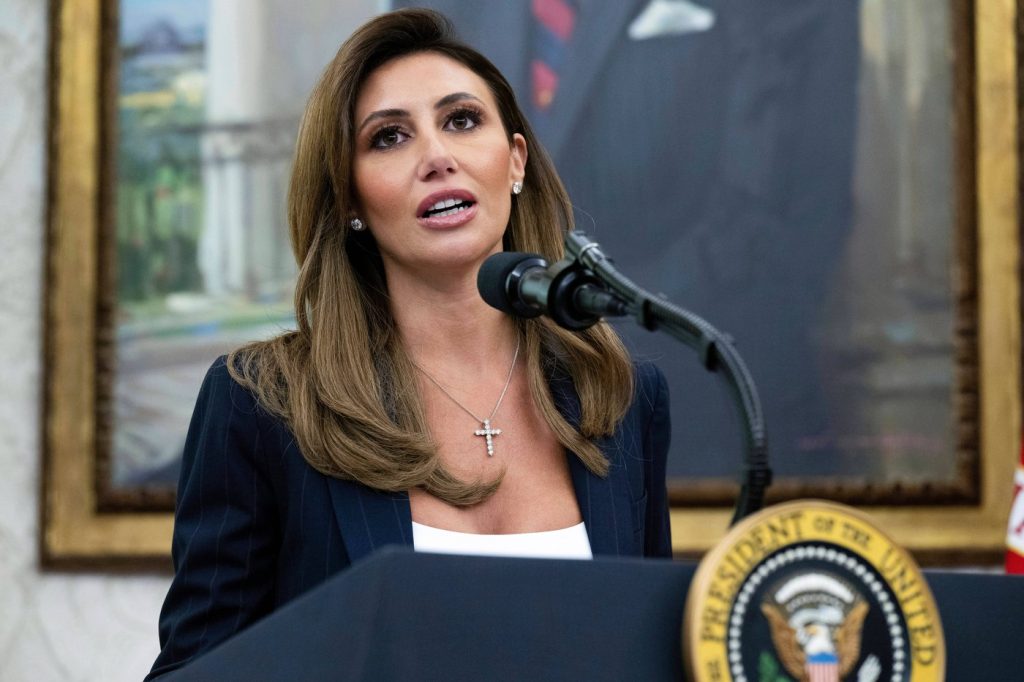PHILADELPHIA (AP) – The 3rd Circuit Court of Appeals is scheduled to hear arguments on Monday regarding the controversial appointment of Alina Habba as the U.S. Attorney for New Jersey. Habba, a former lawyer for President Donald Trump, has been scrutinized since a federal district judge ruled in August that her appointment was invalid, citing "a novel series of legal and personnel moves." The judge's order raised questions about her authority, allowing for the possibility that her actions since July could be declared void.
The legal disputes arose when individuals charged with federal crimes in New Jersey challenged Habba’s legitimacy in her role, arguing that her 120-day term as interim U.S. Attorney had lapsed, thereby stripping her of prosecutorial powers. Despite this ruling, Judge Matthew Brann put his order on hold to allow the U.S. Justice Department an opportunity to appeal the decision.
The government's argument asserts that Habba is lawfully serving under a federal statute that permits the first assistant attorney to occupy the role if an official is appointed through a legitimate process. Habba was appointed as the first assistant attorney general by the Trump administration, reinforcing the government's position ahead of the appeals court hearing.
This situation mirrors a similar case unfolding in Nevada, where a federal judge also disqualified the Trump administration’s nominee for the U.S. attorney position. In an unprecedented political context, Habba’s appointment has drawn significant attention, particularly due to her outspoken intentions to impact the political landscape in New Jersey. Shortly after her appointment in March, she expressed hope to help "turn New Jersey red," signaling a politically motivated agenda that is atypical for someone occupying a prosecutorial role.
Habba’s politically charged actions included filing a trespassing charge against Newark Mayor Ras Baraka, which was ultimately dropped. Additionally, she charged Democratic U.S. Representative LaMonica McIver with assault, a rare and significant move as federal criminal cases against sitting members of Congress typically center around corruption charges. McIver has denied the allegations and pleaded not guilty, with the case currently pending.
Concerns about Habba’s continued service intensified in July when her temporary appointment was set to expire. It became evident that New Jersey's Democratic U.S. Senators, Cory Booker and Andy Kim, would not support her permanent appointment. In response, federal judges in New Jersey exercised their authority as outlined in the law to replace her with a career prosecutor who had been serving as her deputy.
Following this upheaval, U.S. Attorney General Pam Bondi acted decisively by firing the judge-installed prosecutor and reappointing Habba as the acting U.S. attorney. The Justice Department contended that the judges acted too soon, reiterating that the President held the prerogative to appoint a candidate to enforce federal laws in the state.
Judge Brann's ruling emphasized that presidential appointments must still adhere to established time limits and power-sharing guidelines as specified in federal law. This case highlights the complex intersection of legal authority and political dynamics, marking a critical juncture in the ongoing discourse surrounding federal judicial appointments and authority.











